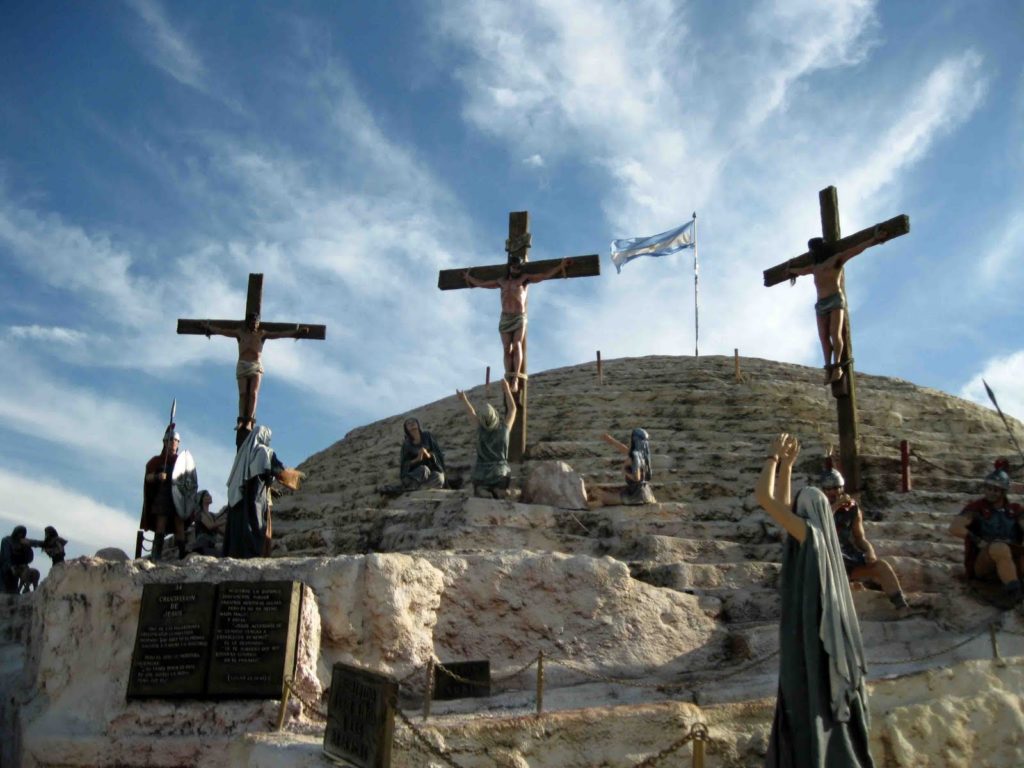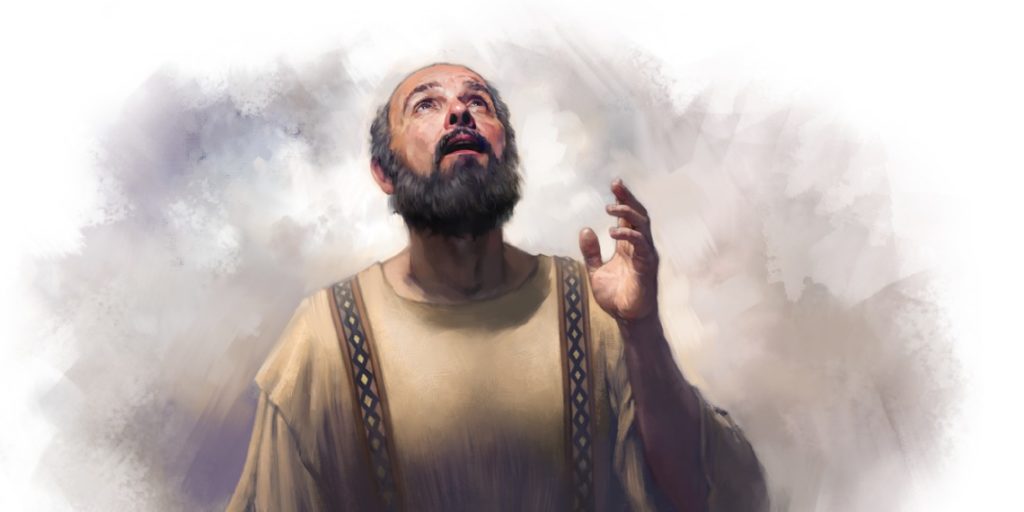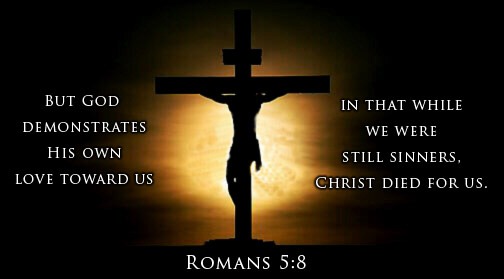On this Good Friday, I am speaking in the service being held in my church—All Saints’ Episcopal in Lakeland, Florida. Here is what I’m sharing.

Why crucifixion? What did one have to do to receive this particularly gruesome method of execution? There were two main reasons.
- One was terrorism (or imputed terrorism such as speaking out against Rome)—this was what the Jewish leaders used to convince Pilate that Jesus had to be crucified; he threatened Roman rule. Even though He said His kingdom was not of this world, the Jewish leaders claimed he was putting Himself above Caesar.
- The second reason was flying in the face of Roman custom, used primarily against slaves who rebelled against their masters or disrespected them with acts of theft, violence, spitting in their food, or rape.
- Significantly, crucifixion was not used against Roman citizens.
What took place on the cross? We’e told in chapter 23 of Luke.
One of the criminals who hung there heaped abuse on Him. “Are You not the Christ?” he said. “Save Yourself and us!” But the other one rebuked him, saying, “Do you not even fear God, since you are under the same judgment? We are punished justly, for we are receiving what our actions deserve. But this man has done nothing wrong.” Then he said, “Jesus, remember me when You come into Your kingdom!” And Jesus said to him, “Truly I tell you, today you shall be with Me in Paradise.”

Luke simply calls the others being crucified “criminals.” Matthew’s account is more specific, calling them robbers/thieves, so it’s probable that the man who asked Jesus to remember him in His kingdom was a slave who was caught taking something from his master. The offense might have been something minor—no one knows. Yet he did admit his guilt and said he was receiving what he deserved. He made no excuses. He instead threw himself upon God’s mercy, believing Jesus was God.
How did he come to the belief that Jesus was God? Again, we have no information about that. Was he one of the multitude listening to Jesus speak? Did he witness miracles? Or did he simply hear the testimonies of others and believe without seeing? Regardless, the key is that he did believe.
Paradise in the Greek language means a garden, pleasure-ground, or park. We see this word used in other Scriptures. The Apostle Paul, in 2 Corinthians, chapter 12, said, ” I know a man in Christ who fourteen years ago was caught up to the third heaven. Whether it was in the body or out of it I do not know, but God knows. And I know that this man—whether in the body or out of it I do not know, but God knows—was caught up into Paradise. The things he heard were too sacred for words, things that man is not permitted to tell.”

Paul, of course, was talking about himself. He refers to paradise as the third heaven–the first being the atmosphere above the earth—the second referring to outer space where the planets and stars are found—and the third being the actual dwelling place of God. That’s where Paul went in the vision God gave him (and he wasn’t permitted to share everything he heard), and that’s also where the thief on the cross went, according to Jesus’s promise to him.
Then there’s the Apostle John in the book of Revelation, where Jesus appears to him and tells him to pass on His words to the seven churches. To one, Jesus says, “He who has an ear, let him hear what the Spirit says to the churches. To the one who is victorious, I will grant the right to eat from the tree of life in the Paradise of God.”
The Garden of Eden (also called a paradise in Hebrew) had both the tree of life and the tree of the knowledge of good and evil; the Paradise of God will only have the tree of life. And according to this verse in Revelation, only those who have been victorious Christians will be granted the right to eat from that tree.

The thief on the cross can be considered as the first fruits of the atonement. Jesus said the man would be with Him that very day in paradise. Some believe in soul sleep—that no soul goes to heaven until the Day of Judgment—but Jesus’s words indicate otherwise. The Apostle Paul also says in 2 Corinthians, chapter 5,
Now we know that if the earthly tent we live in is dismantled, we have a building from God, an eternal house in heaven, not built by human hands. For in this tent we groan, longing to be clothed with our heavenly dwelling, because when we are clothed, we will not be found naked.
So while we are in this tent, we groan under our burdens, because we do not wish to be unclothed but clothed, so that our mortality may be swallowed up by life. And God has prepared us for this very purpose and has given us the Spirit as a pledge of what is to come.
Therefore we are always confident, although we know that while we are at home in the body, we are away from the Lord. For we walk by faith, not by sight. We are confident, then, and would prefer to be away from the body and at home with the Lord.
We’re told in I Timothy, chapter 2, that God “desires all men to be saved and to come to the knowledge of the truth.” And in 2 Peter, chapter 3, we are instructed, ” The Lord is not slow to fulfill His promise as some understand slowness, but is patient with you, not wanting anyone to perish but everyone to come to repentance.”
For He says: “In the time of favor I heard you, and in the day of salvation I helped you.” Behold, now is the time of favor; now is the day of salvation!
2 Corinthians 6:2
The day of salvation came for the thief even as he hung on the cross. Our day of salvation can be as immediate as his was. It can be this very day. If we take up our cross, deny ourselves, and follow Christ, this can be the day of salvation for all who hear these words.
Today you shall be with Me in Paradise.

